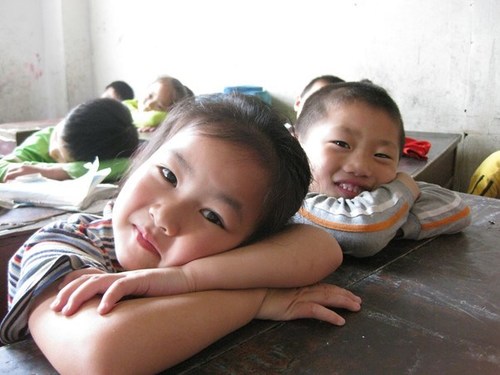SHANGHAI, June 22, 2022 /PRNewswire/ — Scholarship on how culture influences curriculum is common in the disciplines of anthropology, sociology, and education. However, this literature is Euro-American centric, disregarding diverse cultural contexts in Africa, Asia, and the rest of the world. This special issue, Childhood, Culture and Curriculum in Diverse Contexts addresses this gap by including studies on China, Singapore, and the UAE. "This special issue aims to explicitly acknowledge that, first, culture and the value system it provides has never stayed away from us. Second, social change and cultural collisions in the globalized world reshape children’s experiences and curriculum," says Dr. Weipeng Yang, author of the issue’s editorial.
The articles in this special issue are structured within the framework of the ecological model, which is redeveloped into the model of curriculum hybridization. According to the ecological model, the curriculum must be seen in the context of various competing ecosystems, i.e., the macrosystem (larger cultural context), the exosystem (institutional imperatives), and the mesosystem (parents, teachers, education experts).
Addressing the microsystem, one paper explores how dramatic pedagogy can be used to instill morality in children. Taking the Chinese education context as backdrop, Dr. Mengyu Feng demonstrates how process drama facilitates empathy, autonomy, and dialogue. In contrast, another paper engages with the mesosystem. Against the backdrop of a rapidly urbanizing Chinese landscape, Dr. Xin Luo examines how parental involvement intersects with children’s play and learning in public playgrounds.
The issue then asks, how does policy reform influence childhood experiences and curriculum? Adopting a critical policy analysis approach, one study examines reforms in the education system in Wales, UK. Dr. Cathryn Knight and Prof. Tom Crick argue that despite a mandate towards greater inclusivity, policies tend to have contradictory perspectives that are counterproductive. Addressing the macrosystem, one of the studies examines how early childhood curriculum in the UAE serves to advance and transmit cultural values amongst children. Dr. Najwa Alhosani authors this first of its kind study within the Emirati cultural context.
Going beyond the ecosystems that influence curriculum, in a comparative study, Dr. Weipeng Yang and Prof. Hui Li review research on early childhood education in China and Singapore to look at the various interactions between the global and the local in the creation of a curriculum. In another article, Prof. Jennifer J. Chen engages with this review and proposes that educators and policymakers alike should find a harmonious middle ground that mediates between policies and local culture, allowing a variety of perspectives to emerge from the curriculum making process.
In an article that addresses the problems caused by adopting a dichotomous view of diversity while creating an early childhood curriculum, Prof. Sue Saltmarsh. proposes that binaries such as mainstream/margin, inclusion/exclusion, same/different encourage us to view diversity as a problem rather than an asset.
The final two articles focus on Chinese cultural contexts. In the first, authors Prof. Yong Jiang et al. adopt expert interview methodsto examine China’s preschool education policy. In the second study, Prof. Tian Baohong examines the importance of Zhong (both character and philosophy) in ancient Chinese education and its relevance, if any, to modern day education.
Due to be released in June 2022, this issue of the ECNU Review of Education promises to bring new insights into early childhood experiences and curriculum development in diverse cultural contexts within a rapidly globalizing world.
Reference
DOI: https://doi.org/10.1177/20965311221092039
Title of original paper: Childhood Curriculum and Culture in Diverse Contexts
Journal: ECNU Review of Education
Media Contact:
Li You
+86 (21) 62224545
339100@email4pr.com
SOURCE ECNU Review of Education


